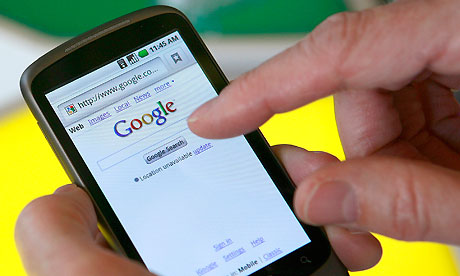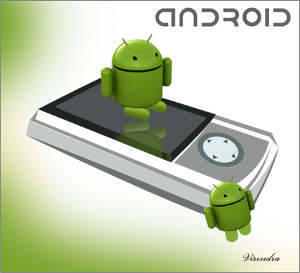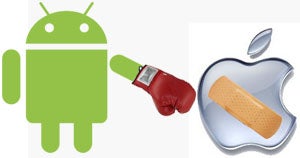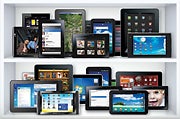OSLO, Norway--The rise of Android and its built-in browser could be seen as very bad news for Opera Software, a company that's built a business with a mobile browser popular on the very low-end devices that Android smartphones often replace.
But Opera sees things differently: Android is a major part of its plan for future growth. And a product due in 2012 that marries the Norwegian company's two mobile browsers, Opera Mini and Opera Mobile, will lead the company's defense of its mobile-browsing stronghold, CNET can report exclusively.
Opera Mobile is a traditional browser, with an engine to process the Web page code and run JavaScript programs. Opera Mini leaves all that heavy lifting to an Opera server that sends a boiled-down version of the page to the phone. Though the Mini approach hobbles some Web sites' interactive features, it cuts network usage significantly, eases battery life, and lets Opera Mini run on devices too feeble for Opera Mobile. Opera has more than 140 million browser users per month, with the vast majority using Opera Mini.
With the hybrid approach that Opera plans for Android devices, the Mobile browser will detect when the network is strained and switch into a Mini mode to cut the data-transfer burden, Chief Executive Lars Boilesen said in an interview here. No longer will Opera users have to decide on their own whether Opera Mobile or Opera Mini would be better at a particular moment.
"We'd like to take Mini and put it into Mobile," Boilesen told CNET. "We call it Opera with Turbo for Android...That is something we are looking forward to launch at the beginning of next year."
Benefiting from the Android threat
With the hybrid browser, Opera is trying to turn a business threat--Android--into an opportunity. Net Applications' analytics show Android's stock browser growing as a percentage of global Web usage while Opera Mini is dwindling. But Boilesen believes the large number of Opera Mini users can be converted to Opera Mobile once they upgrade to Android.

Opera Software is trying to get its employees to help promote Opera Mobile and Mini for Android with this fake money featuring CFO Erik Harrell.
(Credit: Stephen Shankland/CNET) "In countries where we have more than a million [Opera mobile browser] users, we have a very strong brand. It's natural for them to ask to use Opera on whatever phone they get," Boilesen said.
And since January 2010, when Boilesen took over as CEO from Opera co-founder Jon S. von Tetzchner, the number of countries with a million or more Opera mobile browser users has increased from three or four to more than 20.
For that reason, Opera has launched a major Android push. It's no coincidence that when Opera launched the first versions of Opera Mini 6.5 and Opera Mobile 11.5 last week, it began with Android versions.
"We're more focused on Opera for Android. It takes time to make a really good browser. Now we have it, so we're really aggressive," Boilesen said.
How aggressive? "We should get to a 10 percent market share as soon as possible. That's our target" for Android now, Boilesen said. "I think we're on our way to do that. We now have 5 or 6 million users, and we have good reviews."
The marketing department is shifting into a higher gear, too. The Opera offices in Oslo are littered with fake money sporting the face of Chief Financial Officer Erik Harrell; each bill exhorts employees to spread the word about Opera for Android. "Tweet like you've never tweeted before," the bills say.

Monthly Opera Mini users more than doubled in Russia in the last half year, rising from just over 300,000 in April to 700,000 in September.
(Credit: Opera) It's true that Opera is at a disadvantage because its mobile browsers aren't generally preinstalled on Android devices--though some Samsung products are an exception. But that's par for the course for Opera, which has dealt with Internet Explorer being built into Windows for Opera's entire history, and Boilesen said he believes the company's upcoming data-thrifty hybrid browser will appeal to the carriers that can be powerful allies.
"In the U.S. you have a lot of capacity issues. There are so many smartphones connected to base stations," a big problem for the carriers, he said. "We help them to take away traffic through our server compression engine. If you're on a very busy network, or if you have a slow connection, [Opera's hybrid browser] is something operators will be interested in."
Growth besides the U.S. is very important to Opera, though. And the "BRIC" countries of Brazil, Russia, India, and China are high on the priority list given their growing use of mobile Web. Opera is doing well in first three countries, but Opera has launched a joint venture with China Telling called Oupeng to try to make better headway in China.
"In all BRIC countries we are the market leaders, but in China we were very small. Something was wrong...Our user experience was not ideal. It's all based on typing URLs," Boilesen said. But in China, the company needed to "use a light portal with keywords. You put relevant content in front of users. We realized either we had to create lot of content, or we had to invest a lot and find a partner."
Opera's Turbo boost
Turbo is the name of the feature in Opera Mobile and in the personal-computer version of Opera that cuts data usage by using Opera's servers by compressing images, for example. The hybrid version means Web page code such as HTML, JavaScript, and CSS also won't have to be sent over the mobile network.
Here's a comparison I ran using the new data-tallying feature of Opera Mobile and Opera Mini. The BBC's home page is 1.7MB, a size you can check using Opera running its default state with Turbo turned off. Turning Turbo on shrinks the page size to 519KB. With Opera Mini, the page size shrinks even more, to just 304KB.

Opera's mobile browsers now tell people how much data the proxy-server approach is cutting out of their data plans.
(Credit: Opera Software) Though Boilesen said the new hybrid approach will arrive early in 2012, Chief Development Officer Christen Krogh--who's in charge of actually delivering it--said Opera hasn't yet pinned down a specific schedule.
But Krogh was enthusiastic about the approach, seeing it as the natural combination of its mobile browsers and mobile-phone computing trends.
"With Opera Mini, we're going from the bottom up. We see these feature phones becoming more and more capable. And for Opera Mobile, it comes in from the top. It's fantastic for tablets, and good for smartphones," Krogh said. "We have these two forces, one from the top and one from the bottom. You don't need a doctorate in statistics to see at some point the twain will meet."

Revenue derived from partnerships with operators has become Opera's biggest source of money.
(Credit: Opera Software) Better business
Two years ago, Opera was struggling financially, but it's back in the black now. One of the hard decisions the executives had to make was abandoning one of the company's two earlier businesses, consultancy work building custom browsers for carriers. That meant Opera's business had just one leg to stand on for a long time--the ad revenue shared from search-engine partners to whom Opera drives search queries.
"It's been tough, but we feel we are better off now. It was healthy for us to get away from this consultancy business," Boilesen said. "That freed up new resources. We put them on an Android browser. We have now Opera Mobile for Android. It's really going well."
Indeed, Opera finances continue to improve: revenue for the second quarter of 2011 increased 29 percent to $40 million, up from $31 million the year earlier, and profit rose even more, 47 percent, from $3.6 million to $5.3 million.
"The last four quarters have been record quarters," Boilesen said. "Now the focus is how to build on that."
One major effort is to penetrate the TV market. Opera has deals to embed its browser in products from Sony, Toshiba, Philips, Loewe, and Sharp, and at least one other big-name partner is in the works. With the deals, Opera's technology can be used as a traditional browser, but Krogh demonstrated at the company's Up North Web press event how it's also a basic engine to reach big icons that can be operated with just a remote control.
That means Opera becomes a platform to reach an ecosystem of TV-friendly apps that happen to be built with browser technologies--video on demand, games, or reading news with CSS-based page-reading technology proposed by Chief Technology Officer Haakon Wium Lie that can be operated with a remote control's four-way rocker switch.

Christen Krogh, Opera's chief development officer, shows the Opera-powered app interface in Sony Bravia TVs.
(Credit: Stephen Shankland/CNET) Opera also is pushing into app store work with its Handster acquisition. That technology is used to power app stores for LG Electronics, Ericsson, and others, but it can be used for TVs, too. Opera also has payment processing abilities that Boilesen expects will mean new commerce-derived revenue. "People will be buying real stuff and not just software on the Net," he said.
Another Opera growth effort is in advertising. The company's January 2010 acquisition of AdMarvel means it now has ad-exchange technology that publishers can use to deliver ads targeted to particular demographics or areas. The service dovetails with the Opera servers used for Opera Mini.
And the company, which now has 750 employees, is hiring.
"We're back on the growth path," Boilesen said.

















